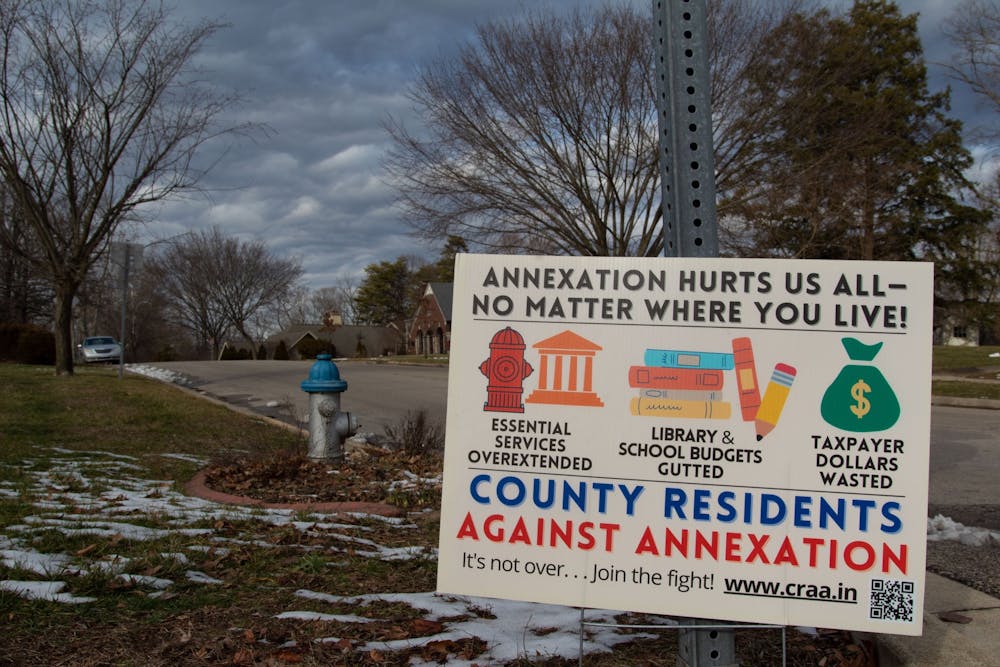Lawrence County special judge Nathan Nikirk announced that the trial for the Bloomington annexation case will not proceed as scheduled in November, as requested by remonstrators opposing the annexation in areas 1A and 1B.
The 2019 law at the heart of the delay is the subject of Bloomington’s second annexation lawsuit against the State of Indiana and Monroe County Auditor Catherine Smith, who the city argues counted invalid petitions under the guidance of the 2019 law. Annexation is when cities expand by bringing unincorporated areas of the county into a city or town, according to the city of Bloomington.
Bloomington started to annex seven areas in 2017. Five of these areas were able to void the annexation by getting signatures from at least 65% of their landowners — these are the areas involved in the second lawsuit. In that lawsuit, the city of Bloomington argues that these efforts are unconstitutional due to a 2019 state law that took effect after the city’s initial annexation attempt.
Areas 1A and 1B, located west and southwest of the city, did not meet this threshold. They received at least 51% of signatures, but less than 65%, meaning they could challenge the annexation in court but not stop it completely. This lawsuit is the one whose trial has just been delayed.
[Related: Indiana Court of Appeals rejects anti-annexation appeal]
The 2019 law was significant because it declared all remonstrance waivers that were 15 years or older void. A person who signs a remonstrance waiver essentially gives up their right to protest annexation in exchange for living in an area with city sewer access.
When the law was passed, 80% of waivers were instantly voided; the city argues that this was substantial enough to affect the remonstrance process. The city has also pointed toward a previous effort by the Indiana legislature to prohibit Bloomington’s annexation in 2017, which resulted in another lawsuit. Though the Indiana Supreme Court ruled in favor of the city in 2020, it delayed the annexation process, which allowed the state to subsequently pass the 2019 law. If this 2019 law is ruled unconstitutional, then the remonstrators will not have enough signatures to ensure judicial review and will have no legal basis for their five-day trial. Lawyers for the remonstrators argued proceeding with the trial would be a waste of time and money in the event the trial has no legal basis.
The trial will be delayed until the constitutional question about the status of the annexation waivers is resolved in another lawsuit.
[Related: City argues state legislations unconstitutional in second annexation lawsuit]
However, the city of Bloomington opposes the decision to delay the trial, which will further delay what is now a six-year-long annexation effort.
A hearing of the challenge to the constitutionality of the 2019 law is now set for Dec. 10.
When the standard trial takes place, the court is required to order annexation to move forward if the city can show that it is in the best interest of the landowners in the areas that will be annexed.




